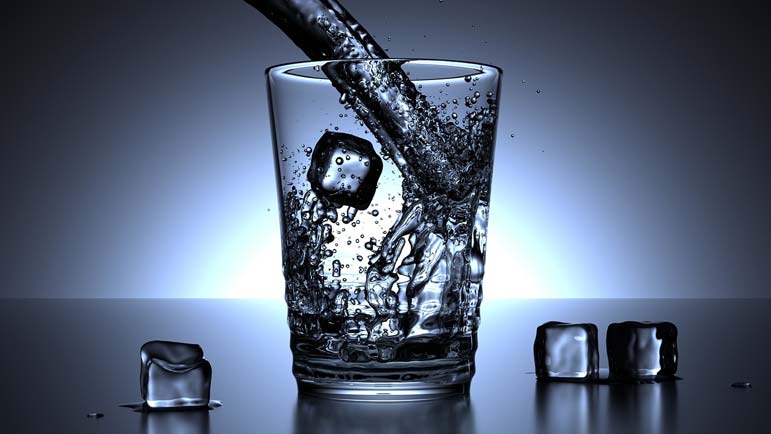
Scientific literature has long suggested a link between serious dehydration and decreased cognition. This might be intuitive: When we're very thirsty, water becomes a matter of survival, and our bodies simply have more pressing concerns than reading reports and filling out forms.
But recent studies suggest we needn't be crawling through the desert for dehydration to hinder our brains' functioning. Even mild dehydration-just enough to make us feel a bit parched-can hurt our ability to reach peak productivity.
In a 2014 study published in the Journal of Cerebral Blood Flow & Metabolism, researchers at Weill Cornell Medical College's Brain and Mind Research Institute found that mild dehydration --- that is, water loss of less than 5 percent of our body weight-can suppress the increase in blood flow induced by, and necessary for, proper neural activity.
That effectively disrupts the blood vessels in the brain, leading to reduced cognitive performance in areas such as short-term memory, attention, and reaction time.
"Based on these findings, it goes without saying that even a mild dehydration might have a significant impact on work capacity and productivity," says Giuseppe Faraco, an assistant professor of neuroscience at Weill Cornell Medical College and one of the study's authors. The effects, he says, seem particularly pronounced for the elderly and young children, who generally can't regulate their bodies' fluids as well.
Faraco's research aligns with previous studies, including a 2010 paper in the journal Human Brain Mapping that suggested prolonged periods of water deprivation could hurt executive functions like planning and visuospatial processing.
Some studies have even suggested a possible link between dehydration and the rise in industrial accidents during the summer, when workers are presumably thirstier.
A study published in the journal Applied Ergonomics in 2004 also found it had a real impact on performance in physical fields such as forestry, with slightly dehydrated workers about 12 percent less productive than their fully hydrated peers.
So should we start chugging as much water as we can at work (and perhaps logging it with fluid-intake apps like Waterlogged)? Faraco points to a 2003 World Health Organization recommendation that men typically need about about 10.5 cups (2.5 liters) of water per day, while women need about 9.3 cups (2.2 liters)-more than the 8 cups that conventional wisdom has long dictated.
He also says that everyone's body handles fluids differently and that the quota is satisfied in part by the water in the foods we eat. "As an example, a diet rich in fruits and vegetables reduces the amount of water that we need to drink," Faraco says. "A good advice is to drink such that you rarely feel thirsty and your urine is colorless or light yellow."
As with anything we put into our bodies, though, you can overdo it with water. Overhydration can cause a host of problems-from wasting your workday in the restroom to a rather serious condition called hyponatremia, in which your body's sodium balance plunges to dangerously low levels. Sure, it's most commonly found in athletes such as long-distance runners-but even desk jockeys can develop this very particular type of drinking problem.


 Contact The Editor
Contact The Editor
 Articles By This Author
Articles By This Author